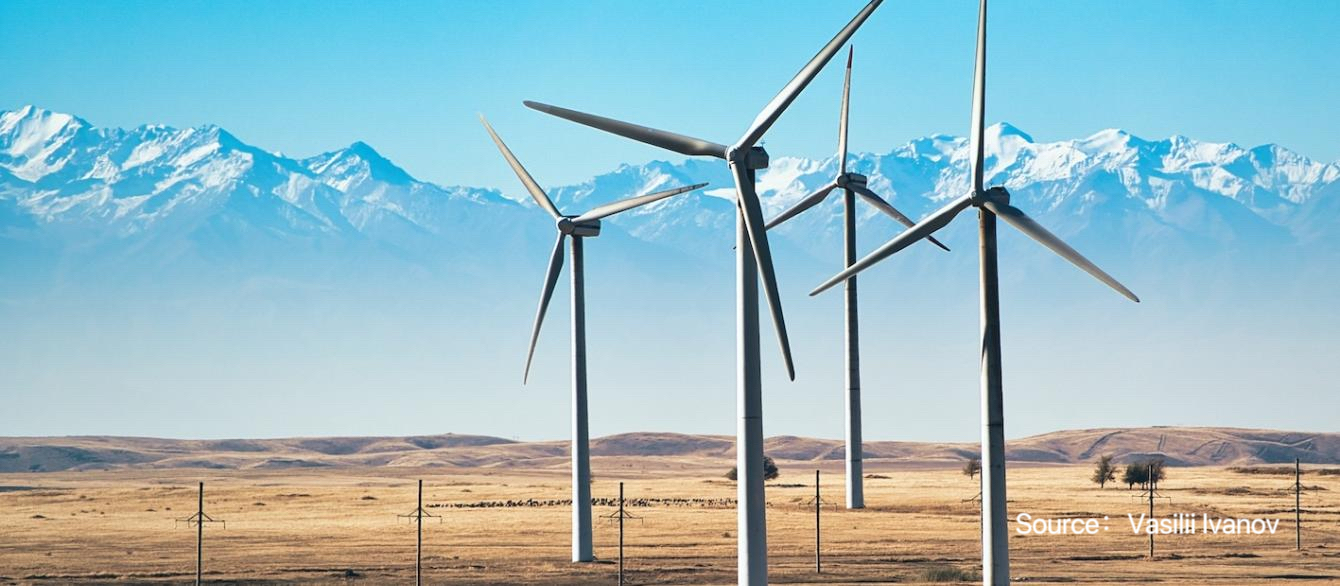



Source: <https://daviscenter.fas.harvard.edu/research-initiatives/program-central-asia/renewable-energy-transition-central-asia>
"I feel honored to witness the growing relationship between China and Central Asian countries as the company continues to expand its business." A few days ago, Zhou Jiali, deputy director of the international business department of Chinese enterprise Huantai Energy, told reporters before leaving for Kazakhstan. Not long ago, he accompanied the company's leaders to complete business negotiations during the China-Central Asia Summit.
In Kazakhstan, Huantai Energy has been operating for more than seven years and is now one of the largest clean energy suppliers there. The 100 MW photovoltaic power plant project in Kapchagai, Almaty, which was connected to the grid in September 2019, is the earliest photovoltaic power generation project invested by the company in Kazakhstan.
At the beginning of the construction of the project, Kazakhstan's electricity production is mainly based on traditional coal, new energy generation accounts for less than 1%, and the power shortage problem is prominent in some regions, and power outages often occur during peak periods. "The completion of the 100 MW photovoltaic power plant project in Kapchagai has made a breakthrough in the local large-scale photovoltaic power plant from 0 to 1." Zhou Jiali said.
Today, Huantai Energy has built six new energy projects in Kazakhstan, with a total scale of 380 megawatts, providing 1.41 billion KWH of green electricity to the local area and reducing carbon emissions by a total of 1.41 million tons. The company has also created a large number of local jobs and trained many technical talents in the field of new energy.
In recent years, with the increasing trend of global energy transition, Kazakhstan's electricity market has also undergone great changes. Under the framework of jointly building the "Belt and Road", like Huantai Energy, more and more Chinese enterprises are investing in new energy fields in Kazakhstan. The Zhanatas Wind Farm, Turgusun Hydropower Station, Akmola Wind Power Project and other new energy projects invested and constructed by Chinese enterprises such as China Power International Co., LTD., Sinohydro International Engineering Co., LTD., China Hydro Power International Co., LTD., have effectively helped Kazakhstan to transition to low carbon.
According to the data of China Power Kazakhstan Energy Investment Co., LTD., by the end of 2022, the total installed capacity of renewable energy projects built by Chinese enterprises in Kazakhstan has exceeded 1,000 megawatts.
On May 18 and 19, the China-Central Asia Summit was successfully held in Xi 'an, during which the participants agreed to deepen practical cooperation in various fields. The summit also provided a good platform for many Chinese companies to expand in the Central Asian market.
According to Nan Yi, chairman of Huantai Energy, during the summit, the company reached consensus on new energy cooperation with relevant parties of Kazakhstan, Kyrgyzstan and Uzbekistan, and achieved a number of important cooperation results. "We look forward to China and Central Asian countries achieving deeper mutual benefit and win-win results, and working together with global partners to contribute to the low-carbon cause of mankind." Nan Yi said.
After the China-Central Asia Summit, Zhou Jiali once again embarked on a trip to Kazakhstan. "Being able to deeply participate in the cooperation between China and Central Asian countries and participate in the construction of the Green Silk Road is a dividend of the times for the collaborative development of individuals and enterprises in the context of the global low-carbon energy transformation and the building of a community with a shared future for mankind." Zhou Jiali said that as a witness to the cooperation of the "Belt and Road", "I will strive to be a friendly envoy in the new era and continue to write the beautiful story in the camel bell."
Source: <https://www.yidaiyilu.gov.cn/p/320042.html>
Translated by Zhao Shengbo